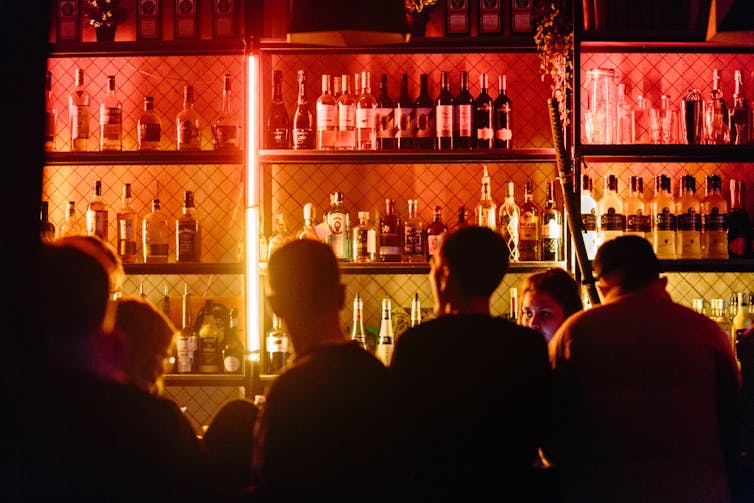Ready for the Pandemic: Is Nightlife Dead Thanks to Coronavirus?
The nightlife sector is showing its strengths.
The announcement was buried by the deluge of coronavirus-related news, but on March 21st The Hague elected a “Night Mayor.” The Dutch city’s new Nachtburgemeester, Pat Smith, brought to his successful campaign a long record as an organizer of dance parties and a nightlife advocate.
He joined the ranks of some 35 other night mayors, night czars, night economy ambassadors and holders of equivalent titles around the world. All of these had been appointed or elected since 2012, when Mirik Milan emerged from Amsterdam’s nighttime cultural sector to become that city’s first mayor of the night.
In a statement following his election, Smith expressed his fears that the COVID-19 crisis might be the “nail in the coffin” for nightlife around the world.
The lock-down was already keeping people in their homes when the orders came to close bars and clubs. From Los Angeles to Ibiza, the island off the east coast of Spain well known for its party scene, nightlife spaces were shuttered because they had been deemed non-essential services and places of easy transmission for the coronavirus.
COVID-19 and live music
The impact of the coronavirus crisis on music performance has been well-documented, since the earliest days of the crisis.
In February, journalists were offering round-ups of all the virtual music festivals and online mosh pits being streamed in China, and in the earliest days of March symphony orchestras in Venice and opera companies in Shanghai were performing online in front of empty concert halls.
Now, as so many of us revel in the abundance of streamed musical performances, from living rooms and bedrooms, the nighttime dance club sector in places like New York City may be facing its worst crisis ever.
Clubs in Berlin and elsewhere have played around with livestreaming DJ sets and parties. No one is speaking of a shortage of available music, however, there are reasons to believe that this crisis is real and possibly catastrophic.
The most obvious reason for this is that going online will not replace the alcohol sales which are a significant source of nightclub revenues.
However, even if clubs re-open, and drinking outside the home returns, nightclubs around the world will at best return to a crisis which has preoccupied them over the past two years.

Ignoring nighttime economies
The rise of night mayors after 2012 followed the recognition by many cities that they largely ignored what many called their nighttime economies. Those who worked in the nighttime entertainment sector had long argued that their contributions to employment and city tax coffers went unrecognized.
In Europe, cities formed night councils, bringing together club owners, citizen organizations, police and transport services and others with a stake in the nighttime life of cities. The nightlife sector itself came together in club commissions or other groupings formed in part to get the ear of city administrators.
In the early days of these developments, the aim of nighttime entrepreneurs and activists was simply to be recognized for their contributions to the life of cities.
Rising rents
By 2018, newly appointed night mayors and city governments were being called upon to preserve and protect a sector in serious danger of collapsing. From Mexico City to Toronto, urban gentrification was threatening to kill off the city venues (the clubs and bars) on which the nighttime music sector depended.
Rising rents meant music venues gave way to condo developments or fancy restaurants. The new inhabitants of once-lively neighbourhoods now pushed for the enforcement or tightening of noise regulations, forcing music clubs to either close, invest in expensive soundproofing or pay an unending series of fines.
The new night mayors of popular tourist destinations like Prague now found themselves having to mediate between the demands of bar owners for protection and ongoing complaints from the residents of historic city centres, who found their neighbourhoods overrun by Airbnb revellers.
Berlin, Toronto, Melbourne

In January 2020, before the coronavirus had changed the lives of most Europeans, public officials and nighttime activists in Berlin came together to show their support for the nightclub sector. Limits on rent increases, eased restrictions on noise and the recognition of nightclubs as key features of Berlin’s identity and economy were all put on the table.
A few days later, the closing of the popular Berlin club Griessmuehle — yet another victim of rising rents and gentrification — confirmed the fear that the crisis might be irreversible without significant intervention by governments.
The fear, then, is the coronavirus crisis will exacerbate a crisis of nightlife already well underway.
Nightlife sector is now organized
If the grounds for hope may seem scarce, we may nevertheless point to a couple of these.
One is simply that city governments have been compelled to recognize the contribution of nightlife to their economic well-being. Many, as noted, have created positions in municipal government to administer or protect the culture of the night.
In Toronto, London and Melbourne, for example, this has led to the passing of new “Agent of Change” principles to ensure that builders, buyers and renters of residential units adapt to the existing uses (like loud music performance) of buildings already in the vicinity.
The other hopeful sign is that the nightlife sector has learned to organize itself at the local, national and international levels. Since mid-March, organizations such as Nighttime.org and Global Cities After Dark have argued for public support to freelance DJs and bar staff, publicizing online tools for the distribution of music and tracking developments as the life of cities changes from hour to hour.
Having operated in crisis mode for longer than the current pandemic, the nightlife sector is now showing its strengths.
Lucia Bell-Epstein, a McGill University undergraduate student research assistant, co-authored this story.
![]()
William Straw, James McGill Professor of Urban Media Studies, Department of Art History and Communications Studies, McGill University
This article is republished from The Conversation under a Creative Commons license. Read the original article.
Image: Reuters

